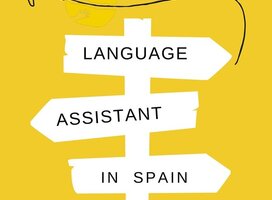Au Pair Jobs in Spain
Spain is an incredibly diverse country, rich with culture, history, dramatic landscapes and of course, being the home of sangria and tapas, food. It’s also a nation of people who are fiercely proud of their heritage, yet warm and welcoming towards foreigners. Of course, the only way to truly understand Spain and Spanish culture, is by stepping out of your comfort zone and truly immersing yourself. And what better way to do so than by living and working with a Spanish family as their Au Pair?
Length of Program
Summer programs are about 2 - 3 months, but longer programs can be up to 12 months.
Responsibilities/Workload
The primary duty of au pairs in Spain is child care, although you may be expected to take on some light chores as well. The exact responsibilities of child care really varies between families and the age of the children.
Location
The majority of au pair placements are around more major cities, such as Madrid, Seville, Malaga, Barcelona, and Valencia, but not limited to urban areas.
When interviewing your family, make sure you understand whether they live in the city center or out of the city center. Try to go into your interview with a good understanding of the city’s neighborhoods, since where you live is just as important as who you live with.
Compensation
In addition to room and board, au pairs should expect about 205-360 euros per month (depending on hours work). Pay varies between families though, so be sure to shop around, and don’t be afraid to negotiate!
Language Courses
It is possible for students interested in studying Spanish to study Spanish while working as an au pair. Make sure you make this clear with your family before you sign a contract, as this may mean working fewer hours and some families may agree to pay for your school fees.
When and Where to Start Looking
Au pairs are hired on a rolling basis, at any time of the year, and throughout the country. However, working as a short-term, summer au pair is a popular option and many au pair agencies offer these programs.
If you are a non-EU citizen who also has to apply for a visa, make sure you start searching well in advance of your desired departure date as visas can take up to two months to be approved.
Where you go depends largely on what side of Spain you want to discover and cost of living. In general, cost of living in Spain is quite low compared to the rest of Europe, so lifestyle and culture may be a larger influence on where you go. For example, would you prefer to be in an urban area or more off the beaten path? Is learning Spanish a priority of yours? Then maybe you’d want to avoid regions of Spain where another language (i.e. Basque) is predominantly spoken.
Also, choosing where you want to au pair before you start your job search will greatly help you focus your search and make the rest of your planning much easier.
Application Process
The application process will be different for EU and non-EU citizens. For EU citizens, you’ll begin your job search with, well, a search through a job database or an agency. After that, you’ll need to ensure your language skills (at least a working level of Spanish is prefered), interview, agree to terms with your employer, and hop on that plane/train/bus and get going! For non EU citizens, the process is similar but with the added visa application. You will have to apply for your visa after obtaining a job. For more details, WikiHow takes you through the steps on how to become an au pair in Spain
Visa Requirements
There are no visa requirements for EU citizens.
For non-EU citizens, you will need to apply for and obtain a visa after receiving a job. For stays less than three months, you will need a short-term work visa. For stays over three months, you will need a long-term work visa. It can take up to 2 months for your visa to be approved.
Interviewing
When interviewing with your host family, make sure you ask as much as you answer. You’re going to want to get a good feel for what your host family expects of you, whether you’ll be allowed to speak Spanish to the children or English only, their lifestyle, work hours, and any benefits besides room, board, and weekly allowance that they may provide (i.e. cell phone or bus pass). Don’t be afraid to negotiate.
Also, don’t necessarily leap directly into the business side of things -- let your family get to know who you are a little bit first! If in doubt, let them lead.
Culture Tips
- Family is incredibly important in Spanish culture, although recently, familial networks have become less tight
- It’s not uncommon for children to be included in evening dinner parties or to be found at the bar with their parents
- People are often referred to Don or Dona and their first name when in formal occasions.
- It’s important to not only develop a great professional relationship with your host family, but also to let them get to know you on a more personal level as well.
- Avoid confrontation











